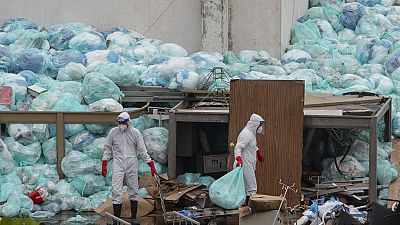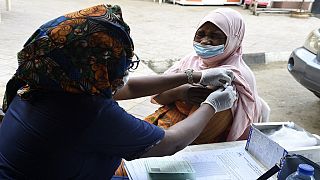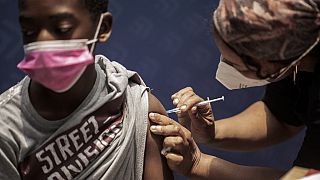WHO
The World Health Organization (WHO) warned Tuesday that the huge amount of medical waste produced as a result of tackling the COVID-19 pandemic poses a threat to human and environmental health.
In a new report, the United Nations health agency said waste syringes, used test kits and old vaccine bottles have all piled up to create thousands of tonnes of medical waste, putting a huge strain on healthcare waste management systems.
The extra waste is "threatening human and environmental health and exposing a dire need to improve waste management practices," the statement reads.
As countries tried to get personal protective equipment (PPE) to cope with the crisis, it appears not much attention is given to disposing off COVID-19 health care waste safely and sustainably, according to WHO.
The report looked at the 1.5 billion units – approximately 87,000 tons of PPE procured between March 2020 and November 2021 through the UN system. According to the report, most of the equipment ended up as waste.
"It is absolutely vital to provide health workers with the right PPE. But it is also vital to ensure that it can be used safely without impacting on the surrounding environment," said WHO emergencies director Michael Ryan.
Additionally, some 140 million test kits have been shipped, with the potential to generate 2,600 tons of mainly plastic, non-infectious waste and 731,000 litres of chemical waste.
The report added that the first eight billion COVID-19 vaccine doses administered globally produced 144,000 tons of additional waste such as syringes, needles and safety boxes.
Based on best international health practices the WHO does not recommend healthcare providers use gloves for vaccine injections but the report said that was a common practice.
In the 71-page report, the WHO acknowledged the fact that safe management services for healthcare waste were lacking even before the emergence of the pandemic.
The report recommended practical solutions, such as using PPE more rationally; using less packaging; developing reusable PPE; using PPE made with biodegradable materials; investing in non-burn waste treatment technology; centralizing waste management, and investing in local PPE production.













01:04
South Africa reports new bird flu outbreak on poultry farms
Go to video
Over 40 killed in attack on Sudanese hospital: WHO Chief condemns “Appalling” strike
Go to video
What to know about the COVID variant that may cause 'razor blade' sore throats
01:29
US medication safety agency approves biannual preventive HIV shot
Go to video
Ghana confirms 34 new Mpox cases, total rises to 79
01:07
WHO says the mpox outbreak remains a public health concern